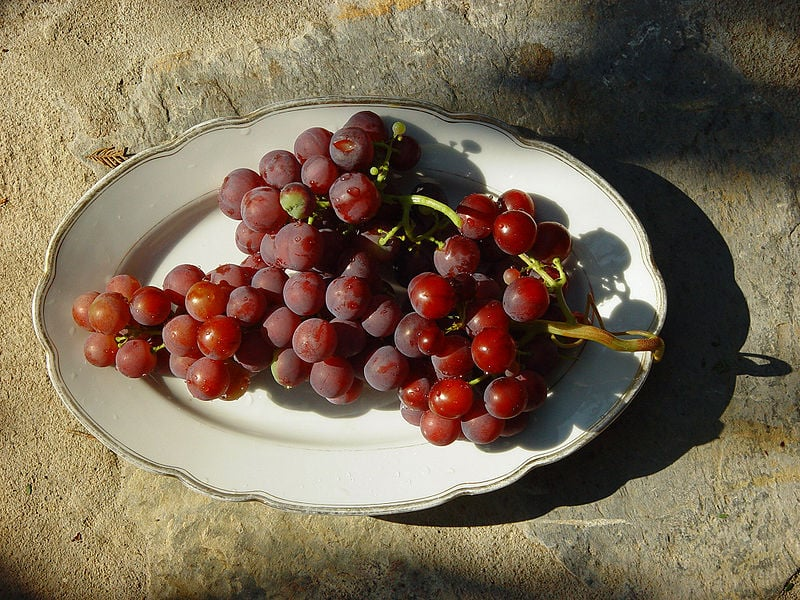 Ancient grape seeds confirm that Greeks have been drinking wine for millennia. Credit: Nivet Dilmen, CC BY-SA 3.0
Ancient grape seeds confirm that Greeks have been drinking wine for millennia. Credit: Nivet Dilmen, CC BY-SA 3.0
The oldest wine in Europe was discovered recently in ancient Philippi of northern Greece, the Department of History and Archaeology of the Aristotle University of Thessaloniki announced.
The University presented research that indicates that the production and drinking of wine in Europe originates from prehistoric Greece.
Thousands of ancient grape seeds and pomace were found in ancient Philippi house whose contents were preserved in a fire that occurred in 4300 B.C..
The Aristotle University of Thessaloniki Department of Archaeology has been conducting archaeobotanical research for the last twenty years. The research began with the use of archeological flotation, an archaeobotanical sampling technique where an archaeological deposit is placed in a flotation tank with water that dissolves the deposit until fragments of plants and other material float to the top.
Sultana-Maria Valamoti, professor of Prehistoric Archaeology and director of the Laboratory for Interdisciplinary Research in Archaeology/ EDAE and the PlantCult Laboratory at the Center for Interdisciplinary Research and Innovation of the AUTH, said that “These first steps were the starting point that led to today’s findings.”
“Thousands of liters of soil have been processed by the method of flotation and a variety of archaeological sites have already been or are being researched archaeobotanically,” said Valamoti.
“Thanks to the work done at the Aristotle University of Thessaloniki, this data, often neglected by research, provides a wealth of information on the social and economic organization in northern Greece, the daily activities of people, their farming and agricultural practices, as well as specific symbolic activities from the 7th to the 1st millennium B.C.,” Valamoti added.
University has been researching prehistoric Greece for decades
The Aristotle University of Thessaloniki Department of Archeology, which conducted the research and where Valamoti is a professor of prehistoric archaeology, has been at the vanguard of archeological research in Greece.
For years, the department was led by George Hourmouziadis, the former Professor Emeritus of prehistoric archaeology, who led excavations in many prehistoric settlements in Thessaly and Macedonia (such as Dimini, Arkadikos, Dramas, etc.)
In 1992, he started the excavation of the neolithic lakeside settlement of Dispilio in Kastoria, Northwestern Greece. A myriad of items, which included ceramics, structural elements, seeds, bones, figurines, personal ornaments, three flutes (considered the oldest in Europe), and the Dispilio Tablet were discovered.
The discovery of the wooden tablet was announced at a symposium in February 1994 at the University of Thessaloniki. The site’s paleoenvironment, botany, fishing techniques, tools, and ceramics were published informally in the June 2000 issue of Eptakiklos, a Greek archaeology magazine.
“I speak and I write using the soil as raw material… this soil is not similar to that which we put in our pots every autumn. It is the soil of a strange garden, a garden where, thousands of years before, people like us, walked on the marks of their toil, anger, and of their rush and calm which they left behind. They left the footprints of their lives,” he noted on the occasion of the publication of his book “Logia kai Coma (Words and Soil).”
Hourmouziadis passed away in 2013.



